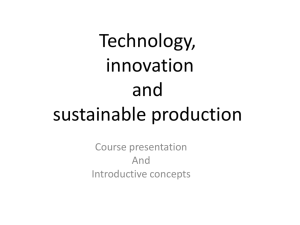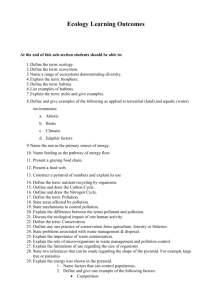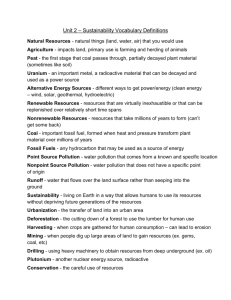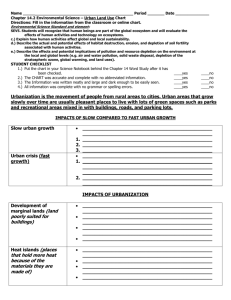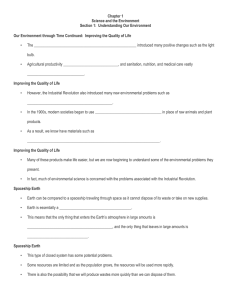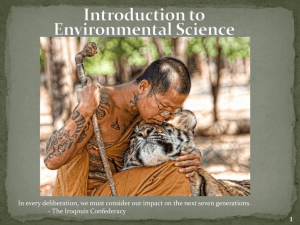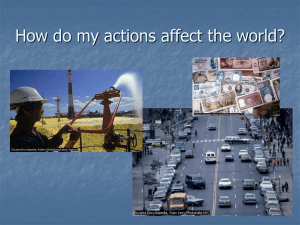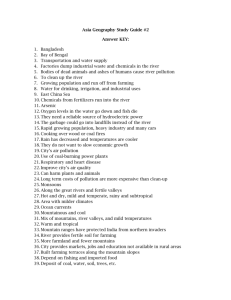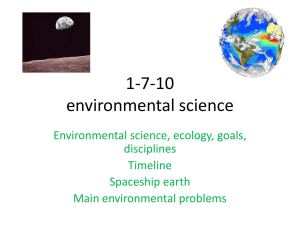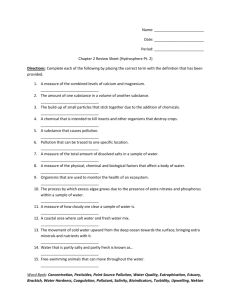Environmental Science Chapter 1
advertisement
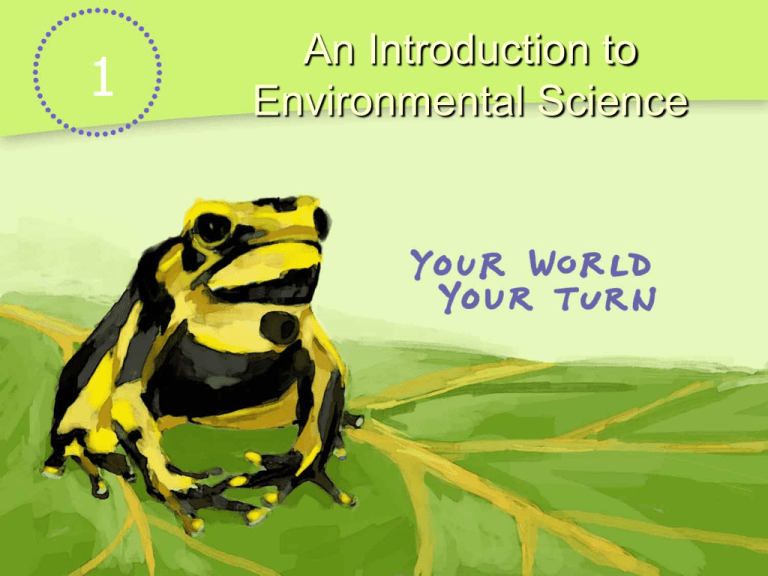
1 An Introduction to Environmental Science Environmental Science Chapter 1 An Introduction Section 1 Goals: •Discuss the importance of environmental science. •Analyze the importance of environmental science from a social and economic context. •Investigate how humans impact on the environment has changed over the course of history. All notes can be found at http://www.manskopf.com Goals Define environmental science List the five major fields that contribute to environmental science Discuss how human’s impact on the environment has changed over history Classify environmental problems Environmental Science Devoted to studying the impacts humans have on the environment NYC Today and 400 yrs ago Goal of environment science To understand and solve environmental problems Ecosystem functions Air Pollution Water Pollution Toxic Chemicals Climate Change Resource usage Newer field of study Environmentalism Is a social movement dedicated to protecting the natural world. What are the environmental consequences of choosing these types of energy sources? What are the benefits and costs of these energy sources? Why does 50% of our current electricity come from coal? Foundation of Environmental Science Ecology: the study of how living organisms interact with each other and the nonliving environment. Ecology wants to study how all of these living and nonliving things interact Fields of Study that Contribute to Environmental Science Biology: the study of living organisms Chemistry: the study chemicals and their interactions Physics: the study of matter and energy Earth Science: the study of earth’s nonliving systems Social Sciences: the study of human populations Biology Chemistry Physics Earth Science Social Sciences Human’s Impact Over History Wherever humans have hunted, grown food, or settled we have changed the environment. How have those changes impacted the environment over human history? Hunter-Gatherers Most of human history People who obtain food by moving around collecting plants and hunting wild animals. What are ways you think they had an impact on the environment? Why didn’t they have a large impact on the environment? What kind of life did they lead? Agricultural Revolution Plants and animals were domesticated and population grew. 10,000 years ago Life got easier Population grew Towns began forming Impact on environment grew More land used Industrial Revolution Caused a shift to fossil fuels as an energy source. 1800s Life got easier Advances in technology People lived longer People moved to cities away from farms Increased environmental impact WHY??? Spaceship Earth Earth is essentially a “closed system” Island Earth Energy from sun comes in and leaves as heat What we have IS IT… no more… One Earth, One Chance Became evident during missions to moon 1969 What are our main environmental problems? Tragedy of Commons Conflicts arise when people share resources If no one takes responsibility for the resource it will get overused and become degraded. Examples? What are Our Main Environmental Problems: Resource Depletion Resource depletion: using up resources before they can be replenished Example: Renewable resources like trees cut faster than they formed What are some other example of renewable resources? Can theoretically last forever What are Our Main Environmental Problems: Resource Depletion Nonrenewable resource forms more slowly than it is used up Examples: minerals like aluminum and fossil fuels like coal, oil and natural gas. Resource is said to be depleted when almost used up Who uses most resources? Developed Countries like the U.S. (high personal wealth) have high consumption rates What are the “developed” countries of the world? Developing Countries: have high population growth, poverty and lower resource consumption List several Ecological Footprint The productive area of land needed to support a persons life Food, cloths, coal, oil, plastics, forest, etc. all needed to support your lifestyle Compare countries http://www.myfootprint.org/ What are our main environmental problems: Pollution Pollution: an undesirable change in the air, water or soil that affects humans or other organisms. Biodegradable Air pollution Water pollution Land pollution Can you give examples? What are our main environmental problems: Loss of Biodiversity Biodiversity: the number and variety of species that live in an area. Earth has been home to 100s of millions of species Only a few exist today Mass Extinctions Sustainability Condition in which human needs are met without harming future generations. Are we living sustainable today? What would need to change? End of Section 1 •Define environmental science •List the five major fields that contribute to environmental science •Discuss how human’s impact on the environment has changed over history •Classify environmental problems Video: http://player.discoveryeducation.com/index.cfm?guidAssetId=384F8786-AA7C-47FB-9EB98A5250DF9E3A&blnFromSearch=1&productcode=US Remember, notes also at www.manskopf.com
